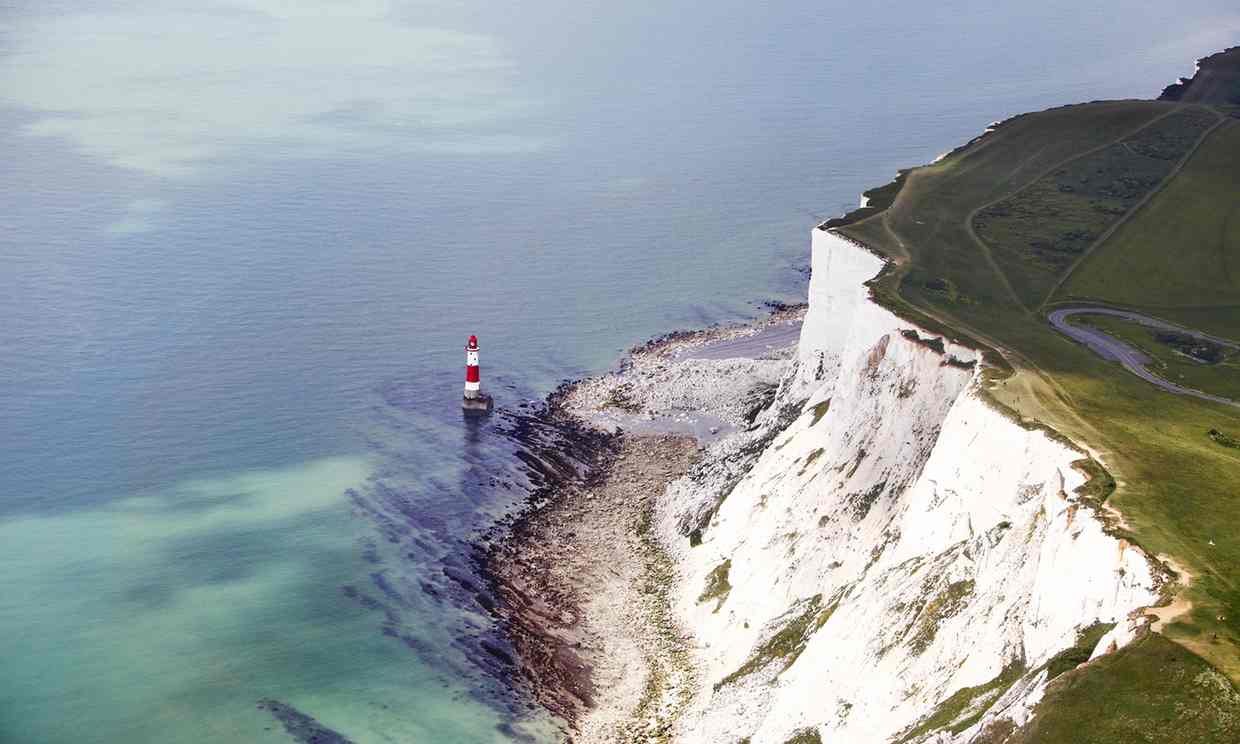Study reveals huge acceleration in erosion of England’s white cliffs

The iconic white cliffs of southern England are eroding 10 times faster than they have over the past few thousand years, a new study has revealed. The cause of the huge acceleration is likely to be human management of the coastline, which has stripped some cliffs of their protective beaches, as well as changes in storm intensity. Climate change, which is bringing higher sea levels and fiercer waves, will make the erosion even worse, say scientists. Researchers analysed rocks from Beachy Head and Seaford Head in East Sussex and discovered that the cliff erosion rate over most of the past 7,000 years was just two-six centimetres a year. But the erosion rate over the past 150 years has been much higher at 22-32cm a year. “We were very surprised at the stark difference,” said Martin Hurst, at the University of Glasgow, who led the new work, published in the Proceedings of the National Academy of Sciences. “If you have a nice thick and wide beach in front of a cliff, that reflects wave energy. But the beaches have all but disappeared.” Coastlines have often been managed to try to protect specific beaches, using groynes or the shifting of sand and gravel. But management near Seaford has led to the cliffs to the east, including Beachy Head, being starved of sediments. “We need to be aware that when we manage the beach in one place, there is a knock-on effect somewhere else,” said Hurst. He said the new information on the long-term rates of erosion will enable researchers to make better predictions for the future about how global warming will affect coastlines: “We are concerned that increasing sea level rise and more storms will drive more erosion.” Almost 7,000 homes in England and Wales are expected to fall into the sea in coming decades as coasts erode. “Humans have significantly altered this coastal system,” said Prof Rob Duck, at the University of Dundee, who was not part of the research team.
Read more: https://www.theguardian.com/environment/2016/nov/07/study-reveals-huge-acceleration-in-erosion-of-englands-white-cliffs

